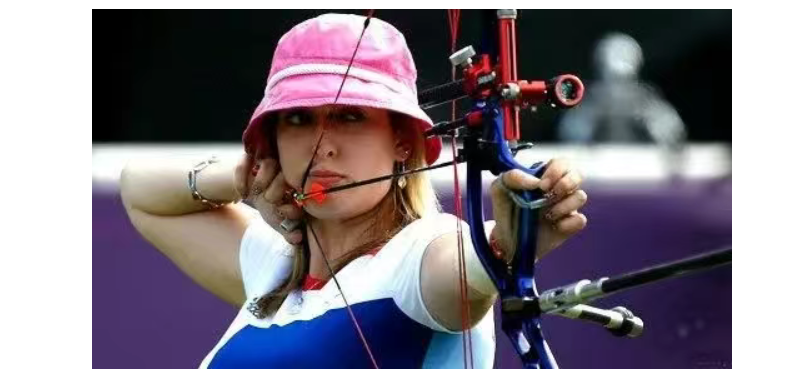Release time:2025-08-20 16:19:41Clicks:author:SPG ArcheryMain categories:Bows, Arrows, Archery Accessories

The ancient Chinese treatise "The Book of Archery" also states: "If Qi is not flowing, force will not be straight; if force is not straight, momentum will not be established; if momentum is not established, the arrow will be shaky and inaccurate. If Qi is harmonious, it will be consistent throughout, without the problem of being strong at the beginning and weak at the end." This discussion focuses on how to utilize Qi and force in archery. Ancient archers placed the greatest emphasis on the application of Qi and force.
Chinese ritual archery is one of the most fascinating components of traditional Chinese culture, embodying a wealth of cultural connotations. It skillfully blends competition and courtesy, bravery and elegance, and practice and adaptability. Throughout history, it has not only preserved the customs of archery but also played a social role in strengthening ethical norms and cultivating moral values.
Image
Over the past decade, in my study and research of traditional Chinese archery, I have come to realize that traditional archery is a culture, while modern archery is a sport. Traditional archery emphasizes the process, while modern archery emphasizes the results. Integrating traditional and modern archery will bring archery to a new level.
Every ethnic archery range in South Korea has two signs: one proclaiming "Nine Commandments of Kyudo" and the other "Eight Principles of Bowmanship." They read:
Nine Commandments of Kyudo:
Eight Principles of Bowmanship:
Benevolence, Righteousness, and Virtue
Observe the Terrain
Honesty and Humility
Observe the Winds
Respect Self-Integrity
Neither Ding nor Ba
Strictly Observe Etiquette
Hold Your Heart and Belly
Integrity, Integrity, and Courage
Pushing Mount Tai Ahead
Practice Archery Without Words
Shoot Like a Tiger's Tail
Correct Your Heart and Self
If You Miss the Target
Do Not Blame the Winner
Look Within Yourself
Do Not Bend Another's Bow
Clearly, this is no longer a competitive sport in the ordinary sense, but rather incorporates Confucian principles for cultivating virtue and character. "Nine Commandments of Kyudo" is a refined discourse on moral conduct. Confucianism believes that archery and virtue are intertwined. "The Book of Rites: The Meaning of Archery" states: "An archer, in his advances, retreats, and turns, must be in accordance with propriety. His inner mind must be upright, and his outer body straight. Only then can he hold the bow and arrow firmly and steadily. Only when he holds the bow and arrow firmly and steadily can he say that he hits the target. This is a testament to his virtue." A upright mind and a straight body are the hallmarks of a gentleman. When Ruan Yuan, a renowned Qing Dynasty scholar, was young, his mother used archery as a metaphor to teach him: "To shoot, one must calm his spirit. Without calmness, one cannot straighten his spirit and upright his body. As Du Fu's poem says, 'Looking back, one's spirit is noble and deep,' this is the secret of archery." In both learning and career, one must avoid carelessness and impulsiveness. One must maintain a calm mind, lofty aspirations, and single-minded focus. This spiritual state is precisely what an excellent archer must possess. Given this connection between archery, virtue, and learning, it's no wonder Confucius taught his disciples archery, and when he practiced at the archery range, the crowds of onlookers formed a wall.
The phrase "Do not blame the victor" and the phrase "If you miss the target, look within yourself" from the "Nine Precepts of Archery" are from the "Book of Rites: The Meaning of Archery." The original text reads, "Archery is the way of benevolence. When shooting, seek self-righteousness. Only when you are righteous can you shoot. If you miss the target, do not blame the victor, but look within yourself." The "Nine Precepts of Archery" and the "Eight Principles of Bow Handling" are the highest principles that archers must adhere to; otherwise, it is not "archery." Koreans call archery "kyudo," reflecting its profound Confucian philosophy, just as tea ceremony is more than just drinking tea, flower arrangement is more than just flower arranging, and boxing is definitely not fighting. The "Meaning of Archery" states that to hit the target, one must first be "calm in mind and upright in body," meaning "inner will upright, outer body straight." This requires archers to adjust their mind and body while appreciating the essence of elegant music, achieving inner and outer harmony, focusing their minds and calming their spirits, and aiming for the target.
Secondly, one should approach the target as a moral goal. The "On the Meaning of Archery" states, "The word 'shooting' means to 'discover', or to 'set aside'. 'Discover' means to 'discover' one's own aspirations." This means that shooting is about seeking and understanding (yiyi, to sort out the clues). Archers of varying status should all seek and understand their own aspirations through the process of practicing archery, aiming at the target as a goal for self-cultivation. The process of shooting is one of repeated introspection, self-cultivation, and self-improvement. Therefore, Confucius said, "He who shoots without missing the target is the virtuous man!" (The On the Meaning of Archery)